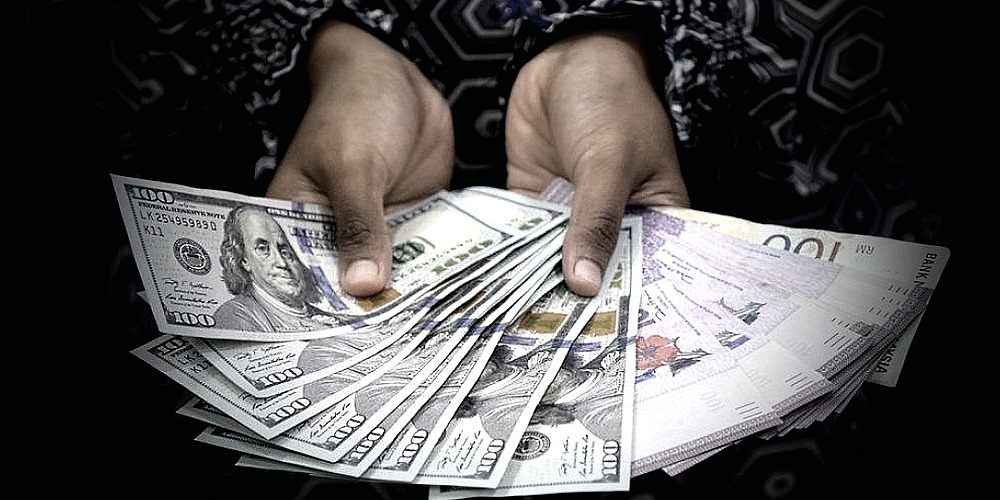The ringgit will only grow stronger if we have a robust economy backed by a clean and stable government. This can’t be achieved overnight, for sure, but at least we must take the first step right now!
Saudi Arabia, the world’s biggest oil exporter, said it would cut its daily output by one million barrels beginning next month, straining further the already acute global fuel shortage.
Analysts have anticipated that Brent crude oil price will surge to over $100 per barrel by end of this year.
Currently global daily demand for crude oil stands at 100 million barrels. Prior to 2022, Saudi and Russia contributed around 11 million barrels each.
Following the outbreak of the war between Russia and Ukraine last year, countries such as Canada, the United States, the United Kingdom, Australia and EU member countries slapped oil and gas import sanctions on Russia.
The IEA has warned that the sanctions could force Russia to cut its oil output by 30%, impacting on the tight international market and sending oil prices higher.
Meanwhile, Saudi has refused to increase its output to bring down the price, and is now declaring that it will also slash output.
Let’s have a quick recap of how the year-long global inflation came about.
First and foremost was the military conflict between Russia and Ukraine that resulted in the West slapping tough economic sanctions against Russia, banning (or cutting) the imports of crude oil, natural gas, agricultural produce (wheat, barley and maize), animal feed, fertilizers and minerals (iron, coal), etc. from that country.
What the West failed to anticipate was that the economic sanctions against Russia could cause severe disruption to the global supply chain given the fact Russia is a major exporter of many primary products.
As a result of the sanctions, the Russian economy slid by 2.5% last year, with an inflation rate of 11.9%, still a shade better than what many Western economies experienced.
Customarily, the most effective counter-measure would have been upping the overnight policy rate (OPR).
Take the US for instance, the Federal Reserve took the lead by raising its interest rate from a low of 0.25% last May to a high of 5.08% this June.

While the higher interest rate may effectively discourage fund outflow from the market and somewhat keep the inflation in check, the move has since prompted countries around the world to follow suit in a bid to stem capital outflow and currency devaluation.
Malaysia was one of the emerging economies that suffer as a consequence.
The local unit has slipped steadily from 4.2 to the greenback this March to 4.62 today. Bank Negara has defended the depreciation of the ringgit, saying we should also evaluate the ringgit’s performance vis-à-vis our major trading partners.
And the sad reality is, the performance of ringgit against other regional currencies is just as disappointing, and the central bank has to admit that indeed the ringgit is one of the weakest currencies in the region.
A weak currency does not augur well for a country’s imports. The selling prices of imported products have been rising steadily over the past one year, and this phenomenon seems to have diffused to other daily necessities and food as well, including an unacceptable 15-25% increase in the prices of food at mixed rice and mamak stalls, which has always been the choice for the B40 community, making it even less affordable now not only for the lower segment of the Malaysian society, but also the middle-income M40 group!
Local newspapers and social media users have repeatedly urged the government to take a more serious look into the stifling economic pressure arising from skyrocketing goods prices.
Deputy finance minister Ahmad Maslan said Bank Negara was looking for appropriate solutions to lighten the burden of average Malaysians.
Although major national infrastructure projects such as the ECRL, LRT 3 and Pan-Borneo Highway should boost the GDP growth to 4-5% this year, the overall economic expansion is not going to mitigate the most down-to-earth issues of shrinking incomes and spiraling inflation.
What the government is now planning to do is to remove the utility and fuel subsidies for the T20 community, and going after tax defaulters, in particular the rich and famous and T20.
Let’s first put aside the question how much the aforementioned measures will actually boost the treasury’s revenue. Has the government ever thought of a more precise definition for T20 given the fact an individual’s income fluctuates with time? A T20 today can be downgraded to M40 anytime!
What the government should do now is to lift the incomes of M40 and B40 individuals and earnestly face and tackle the inflation problem.
Going after T20 for outstanding tax dues and abolishing subsides will at most add only RM10 billion a year to the treasury, which is insignificant by comparison and which is not expected to remarkably improve the livelihood of the country’s poor.
Those in high government offices need to have farsightedness and view the country’s economic development in a more macroscopic manner in order to nurture and retain our best talents here while creating a competitive environment to woo investors.
The ringgit will only grow stronger if we have a robust economy backed by a clean and stable government. This can’t be achieved overnight, for sure, but at least we must take the first step right now!
ADVERTISEMENT
ADVERTISEMENT


































